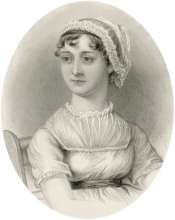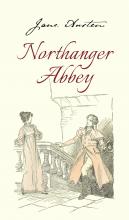inspiration + perspiration = invention :: T. Edison ::
It's a momentous week: footbal (but not fútbol), Valentine's Day, and also International Fanworks Day. Plus I've turned a year older and sold at least one eBook (thank you to my first paid reader!) In celebration of all these events there will be content on my blog every day this week, not just the regular Estancia and 3SF updates. Today, let's look at a popular fandom trope: the One True Pairing, or OTP.

TV Tropes is always dependable for a comprehensive explanation of any meme or theme in fan circles. According to that website, "The One True Pairing (usually abbreviated as OTP) is the couple that a fan or group of fans prefers over all other 'ships. Canon and logic do not necessarily apply, and crossover OTPs are not uncommon." In Jane Austen Fan Fiction (JAFF), Elizabeth/Darcy (or Dizzy) are the prime example of a relationship that remains no matter what else changes about the story or setting.
Not ever JAFF story or main pairing has such a loyal fan base. Willoughby of Sense and Sensibility has his share of fans as an alternative to Col. Brandon for the heart of Marianne Dashwood, although the movie adaptation's choice to cast Alan Rickman as Brandon gave him a major bump in popularity. Famously, Jane Austen's own sister Cassandra preferred Henry Crawford over Edmund Bertram when it came to heroine Fanny Price's affections; she might enjoy the many fan fiction posts that embrace this very alternative outcome.
These "ship" wars crop up around books, shows, movies, even real life celebrities, with the outcome just as heavily contested as any Super Bowl. Like John Thorpe's dismissal of gothic fiction in his day, many have used this aspect of fandom to belittle YA fiction (which tends to present love triangles as a fundamental genre convention) and fan fiction as a whole.
While I'm not a romantic, I don't hate Valentine's Day or reject love stories on principle. In fact, exploring the nuances of human relationships may stir, thrill, and inspire on a unique emotional plane not capable elsewhere. Austen defended her own work in the pages of Northanger Abbey:
"From pride, ignorance, or fashion, ... there seems almost a general wish of decrying the capacity and undervaluing the labour of the novelist, and of slighting the performances which have only genius, wit, and taste to recommend them ... work[s] in which the greatest powers of the mind are displayed, in which the most thorough knowledge of human nature, the happiest delineation of its varieties, the liveliest effusions of wit and humour, are conveyed to the world in the best-chosen language."
From her other writings we know Austen was not uniformly positive about all novels or given to overly idealistic effusions. However, she objected to dismissing an entire genre that provided pleasure to those who enjoyed it. Similarly, even gooey fan fiction fluff is capable of revealing life truths both simple and profound.
Alternative love interests and even triangles are not vices on their own, nor is the desire for a happily ever after. The danger comes when OTP become idols rather than ideals. I dislike when characters and situations are twisted solely to achieve an author's end, romantic or otherwise. But it's especially tragic when pursuit of a love interest is presented as the only meaningful achievement in life. An Elizabeth who objects to Darcy's interference in her sister's affairs, then completely forgets said family once she embraces her "destined" place as his wife, is almost farcical, and disregards some of the core themes of the novel. Taken to the extreme, an OTP may become an excuse for all kinds of irresponsible, even cruel actions driven by lust and selfishness rather than true love.
Instead, I prefer OTPs that naturally develop from the plot, themes, and character goals present in the story, the best of which challenge individuals to become better than they were alone. JAFF contains many rich examples of people learning and growing through their courtship but also their interactions with family, friends, neighbors, even antagonists. The main pairing holds a special place primarily due to the narrative weight its given, and the uncertainty of whether this relationship will continue or end based on the incremental decisions made along the way.

My own writing in the last few years has embraced a couple that gets very little love: Catherine Morland and Henry Tilney. Neither of these characters are "alphas" or dominant personalities. Nor is their courtship particularly angsty or passionate, more low than slow burn. The closet thing they have to quarrel is resolved in the very next chapter. Fandom as a whole has passed over this pairing.
However, there's a lot of nuance and plain good fun in reading and writing about such a mundane couple. They're different yet remain friendly throughout, and constantly communicate rather than smolder, disproving so many fandom tropes that some even doubt whether there can be affection without conflict. Their drama is mainly external while still providing them challenges to overcome and valuable lessons to be learned. Their quiet form of heroism is both more common and rare than the usual grand romances, and fiction is all the richer for it.
If you have an OTP, enjoy! If you don't, that's fine too! Just remember to value the people as much as the pairing, allowing the relationship to enrich as much as it evokes, and recall that for every star-crossed pair of lovers, there may be a mundane, merely happy couple no less deserving of appreciation.
Look for a bonus married Tilney short tomorrow for Valentine's Day, Chapter 13 of Estancia Aldea Norteña on Wednesday, and even more Catherine/Henry fiction on Friday. But Thursday is still a surprise. What would you like to see? A missing scene or alternative viewpoint for Estancia, or something set in Georgian England a la Trifles Light as Air? Something completely different? Let me know in the comments.





